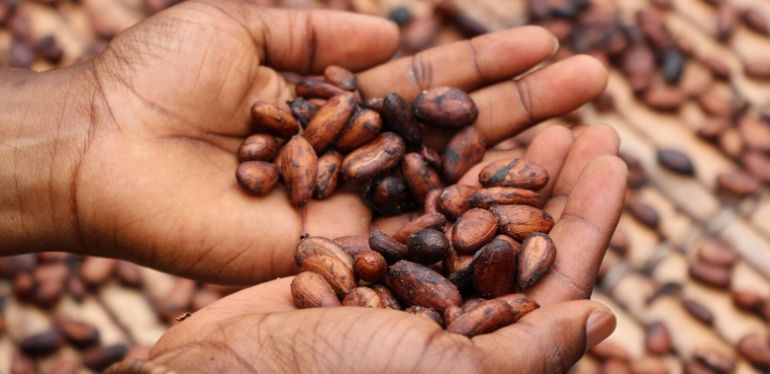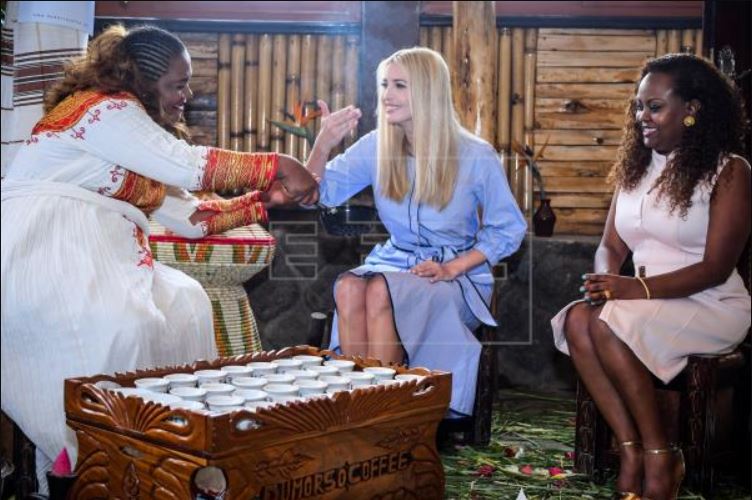The coffee-drinking culture has evolved throughout the years and in the modern, fast-paced world of today. The drink is an essential part of most people’s diets. This rich flavorful beverage gives us the energy boost we need to get our bodies going for the day ahead.
Unknown to most people, however, the native and undomesticated origin of the coffee plant and the drink itself originated in Ethiopia and the plant has been around since the 10th Century BCE or even further back in time. The arabica plant was said to be originated in the south-western highlands of Kaffa, hence the word “coffee”.
The Ethiopian Coffee Ceremony: A Taste of Ethiopia
Ethiopians think so highly of the plant and drink that preparing, serving, and drinking coffee has a detailed ceremony. The Ethiopian coffee ceremony is a crucial symbol of friendship and respect with familial themes so it is customary for invited guests to bring gifts, usually sugar or incense, for the host family.
While everyone attends the ceremony, it is conducted by a young woman of the host family who has mastered the craft. She wears a traditional, ankle-length white cotton dress embroidered at its borders with colorful threads. The hostess, trained since she was a young girl, first burns incense to cleanse the area from bad spirits before offering her guests traditional snacks.
The Fine Art of Coffee Making
The coffee ceremony begins when the raw coffee seeds are washed with the husks removed before being placed in a pan and held above a hot stone oven. The beans are shaken and turned to make sure they are roasted evenly and to avoid burning them. The hostess removes the beans from the heat once they become dark and shiny. She makes sure that as she removes the roasted coffee beans, the earthy aroma surrounds the area.
The roasted beans are grounded by hand using a mukecha bowl and a zenezena stick before being transferred to a handcrafted clay pitcher called jebena. The pitcher is filled with water and is placed on the stone oven to boil its contents.
The brewed coffee or bunna is poured from the jebena to a decanter and cooled. Once cooled enough, it is poured back in the jebena and the boiling process is done again. The ground coffee beans are boiled and cooled three times before it is ready for consumption.
The spout of the jebena is lined with a filter often made out of horsehair to separate the grounds from the drink. Neat rows of Cini or ceramic cups are filled with coffee but pouring the coffee is not as simple as it sounds. The hostess masters the art of holding the jebena a foot away from the ceramic cups before elegantly pouring the drink out. A few drops may fall out of the cup but it is considered to be part of the ritual. The cups are then placed on a tray lined with scented grass that symbolizes abundance before serving it to the guests.

Enjoying Your Coffee
Traditionally, the first cup is served to the oldest guest and is served by a child. It is one of the many ways that the Ethiopian culture connects and respects the generations. Black coffee is served but guests are free to put a few spoonfuls of sugar but in a traditional country household, salt is served instead of sugar, while in some regions, honey may be added to the brew. However, this coffee is never served with milk. Some common pairings with your coffee include peanuts, ihmbaba (popcorn) and a local snack made from roasted barley.
When you are partaking in this amazing ceremony, you should never refuse to drink the coffee. You wouldn’t have a reason to anyway as the experience alone is a treat for all five senses. The ceremony includes serving three rounds known successively as abol, tona, and Baraka. The three cups symbolize an elevation of the drinker’s spirit that is brought closer to transformation with every cup.
Where to Experience the Coffee Ceremony
Experiencing Ethiopia’s coffee ceremony is quite easy as traditional restaurants offer this activity, but to best enjoy the full traditional and cultural experience, it is best to visit the countryside or coffee plantations. Special tour packages are usually offered so you can simply request for the coffee ceremony to be added to your itinerary. It’ll be a truly fun experience to go on a coffee activity tour in Ethiopia!
Travelling often exceeds the typical photo in front of tourist spots as more and more people opt for the full cultural experience with activities and guided tours. Traditions such as the coffee ceremony offer insights beyond the literal taste of Ethiopia as you are also immersed in the country’s social and cultural norms that have lasted for generations. This is definitely something you don’t want to miss out on during your stay in Ethiopia.
If you want to know more and want to experience this unique coffee ceremony, talk to us! We’ll ensure you truly get the Ethiopian coffee experience of a lifetime.
Checkout our Ethiopian Coffee Tours
- Ethiopian Coffee Tour 4 Days (Yirgalem And Yirga Chefe)
- Ethiopian Coffee Tour 5 Days (Yirgalem And Yirga Chefe)
- Ethiopian Coffee Tour 6 Days (Jimma-Keffa-Bebeka-Makira)
- Ethiopian Coffee Tour 8 Days

